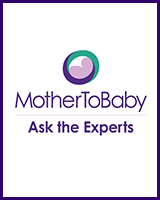This work is available under the Creative Commons Attribution-NonCommercial-NoDerivs 3.0 Unported license (CC BY-NC-ND 3.0)
NCBI Bookshelf. A service of the National Library of Medicine, National Institutes of Health.
Mother To Baby | Fact Sheets [Internet]. Brentwood (TN): Organization of Teratology Information Specialists (OTIS); 1994-.

Mother To Baby | Fact Sheets [Internet].
Show detailsThis sheet is about exposure to psilocybin mushrooms (“Magic Mushrooms”) in pregnancy and while breastfeeding. This information should not take the place of medical care and advice from your healthcare provider.
What are psilocybin mushrooms (“Magic Mushrooms”)?
The term "magic mushrooms" refers to mushrooms that cause an altered state of mind (hallucinations/delusions). Psilocin and psilocybin are the hallucinogenic components found in certain types of mushrooms and are sometimes referred to as psychedelics. Psilocybin mushrooms may be called other names such as caps, shrooms, and buttons. Magic mushrooms are usually eaten fresh or dried but may be brewed in tea or added to food. Psilocybin may also be taken as a pill (capsule).
I take magic mushrooms. Can it make it harder for me to get pregnant?
It is not known if taking magic mushrooms can make it harder to get pregnant.
Does taking magic mushrooms increase the chance of miscarriage?
Miscarriage is common and can occur in any pregnancy for many different reasons. Studies have not been done to see if taking magic mushrooms alone could increase the chance of miscarriage.
Does taking magic mushrooms increase the chance of birth defects?
Every pregnancy starts out with a 3-5% chance of having a birth defect. This is called the background risk. Studies have not been done to see if taking magic mushrooms can increase the chance of birth defects in humans. A single animal study showed no increased chance of birth defects.
Does taking magic mushrooms increase the chance of other pregnancy-related problems?
Studies have not been done to see if taking magic mushrooms can increase the chance for pregnancy-related problems such as preterm delivery (birth before week 37) or low birth weight (weighing less than 5 pounds, 8 ounces [2500 grams] at birth).
Does taking magic mushrooms in pregnancy affect future behavior or learning for the child?
Studies have not been done to see if taking magic mushrooms can cause behavior or learning issues for the child.
Breastfeeding while taking magic mushrooms:
Magic mushrooms have not been studied for use during breastfeeding. It is not known how magic mushrooms could affect a nursing child. If you are taking magic mushrooms while breastfeeding and you suspect that the baby has unusual symptoms (trouble feeding, sleeping, or breathing) contact the child’s healthcare provider. Be sure to talk to your healthcare provider about all your breastfeeding questions.
If a male takes magic mushrooms, could it affect fertility (ability to get partner pregnant) or increase the chance of birth defects?
Studies have not been done to see if taking magic mushrooms could affect male fertility or increase the chance of birth defects above the background risk. In general, exposures that fathers or sperm donors have are unlikely to increase risks to a pregnancy. For more information, please see the MotherToBaby fact sheet Paternal Exposures at https://mothertobaby.org/fact-sheets/paternal-exposures-pregnancy/.
Selected References:
- Hallock RM, et al. 2013. A survey of hallucinogenic mushroom use, factors related to usage, and perceptions of use among college students. Drug Alcohol Depend 130(1-3):245-8. [PubMed: 23265089]
- Jairaj C, et al. 2022. Postpartum depression: A role for psychedelics? Journal of Psychopharmacology 36(8), 920-931. [PMC free article: PMC9354062] [PubMed: 35638179]
- Rolsten C, 1997. Effects of chlorpromazine and psilocin on pregnancy of C57BL/10 mice and their offspring at birth. Anat Rec 157:311.
- Stein CA, et al. 2022. The Pharmacology and Clinical Applications of Psychedelic Medicines Within Midwifery Practice. J Midwifery Womens Health 67(3):373-383. [PMC free article: PMC9322528] [PubMed: 35522087]
- Timar L, Czeizal AE. 1997, Birth weight and congenital anomalies following poisonous mushroom intoxication during pregnancy. Reprod Toxicol 11: 861 [PubMed: 9407596]
“OTIS/MotherToBaby encourages inclusive and person-centered language. While our name still contains a reference to mothers, we are updating our resources with more inclusive terms. Use of the term mother or maternal refers to a person who is pregnant. Use of the term father or paternal refers to a person who contributes sperm.
- Review Unpredictable Behavior Under the Influence of "Magic Mushrooms": A Case Report and Review of the Literature.[J Forensic Sci. 2019]Review Unpredictable Behavior Under the Influence of "Magic Mushrooms": A Case Report and Review of the Literature.Honyiglo E, Franchi A, Cartiser N, Bottinelli C, Advenier AS, Bévalot F, Fanton L. J Forensic Sci. 2019 Jul; 64(4):1266-1270. Epub 2018 Dec 12.
- Perceived harm, motivations for use and subjective experiences of recreational psychedelic 'magic' mushroom use.[J Psychopharmacol. 2020]Perceived harm, motivations for use and subjective experiences of recreational psychedelic 'magic' mushroom use.Roberts CA, Osborne-Miller I, Cole J, Gage SH, Christiansen P. J Psychopharmacol. 2020 Sep; 34(9):999-1007. Epub 2020 Jul 17.
- DNA Authentication and Chemical Analysis of Psilocybe Mushrooms Reveal Widespread Misdeterminations in Fungaria and Inconsistencies in Metabolites.[Appl Environ Microbiol. 2022]DNA Authentication and Chemical Analysis of Psilocybe Mushrooms Reveal Widespread Misdeterminations in Fungaria and Inconsistencies in Metabolites.Bradshaw AJ, Backman TA, Ramírez-Cruz V, Forrister DL, Winter JM, Guzmán-Dávalos L, Furci G, Stamets P, Dentinger BTM. Appl Environ Microbiol. 2022 Dec 20; 88(24):e0149822. Epub 2022 Nov 29.
- Magic Mushrooms - an exploratory look at how mental health professionals feel and think about Psilocybin.[Psychiatry Res. 2022]Magic Mushrooms - an exploratory look at how mental health professionals feel and think about Psilocybin.Meyer TD, Meir P, Lex C, Soares JC. Psychiatry Res. 2022 Oct; 316:114727. Epub 2022 Jul 16.
- Review DARK Classics in Chemical Neuroscience: Psilocybin.[ACS Chem Neurosci. 2018]Review DARK Classics in Chemical Neuroscience: Psilocybin.Geiger HA, Wurst MG, Daniels RN. ACS Chem Neurosci. 2018 Oct 17; 9(10):2438-2447. Epub 2018 Jul 16.
- Psilocybin mushrooms (“Magic Mushrooms”) - Mother To Baby | Fact SheetsPsilocybin mushrooms (“Magic Mushrooms”) - Mother To Baby | Fact Sheets
Your browsing activity is empty.
Activity recording is turned off.
See more...